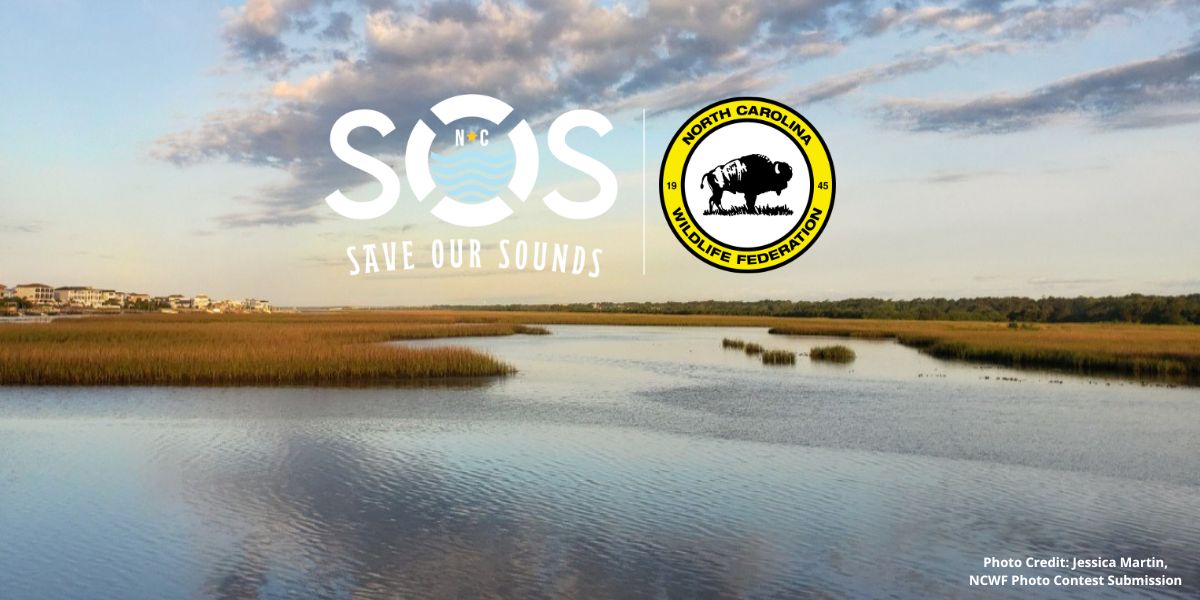North Carolina Wildlife Federation Renews Call for End to Inshore Shrimp Trawling After 2024 Flounder Season Canceled

CEO of the North Carolina Wildlife Federation Tim Gestwicki issues the following statement about the cancellation of the 2024 Recreational Flounder Season:
“On May 23, 2024, the N.C. Division of Marine Fisheries announced to the N.C. Marine Fisheries Commission that the 2024 recreational Flounder season will be canceled in order to preserve the southern flounder resource. This is the first time that decision has had to be made, but the writing has been on the wall for a long time. Southern flounder and other important fisheries in North Carolina are in dire condition and strong action is needed now to save them.
While there are many reasons why southern flounder and other fisheries fall under overfished and overfishing status, one of the most significant contributing factors is bycatch from inshore shrimp trawling. That’s why allowing this practice in our sounds must stop now and shrimp trawling should only take place in coastal ocean waters.
Bycatch is the unintended part of a catch taken because of the non-selectivity of the fishing gear used – in this case, shrimp trawls. The most reliable bycatch study done to date shows that for every pound of shrimp harvested in North Carolina’s waters (most of which are caught by otter trawls), over four pounds of non-target catch, including juvenile finfish such as southern flounder, are discarded (Brown 2015). According to the NC Division of Marine Fisheries’ North Carolina Southern Flounder Fishery Management Plan Amendment 3, ‘In North Carolina’s shrimp trawl fishery, southern flounder represented 1% to 33% of the regulatory discards…’ with the majority of southern flounder shrimp trawl discards occurring in the estuarine nursery grounds.
Regulatory discards refers to fish that are caught that are below the minimum size limit. These fish must immediately be returned to the water, but many of them die because of ‘physical injury associated with capture and indirect predation from birds, sharks, and dolphins (Brown 2015).’ In fact, inshore trawling accounts for a scientifically estimated tens of millions of pounds of dead juvenile finfish of commercial and recreational importance each year (Brown 2015).
North Carolina is the only state on the Atlantic and Gulf coasts that still allows large-scale shrimp trawling in its estuaries. It is not a coincidence that we are also currently facing a high level of threat to flounder and some of our other most important fisheries, such as weakfish, spot, croaker, and blue crab. States to our south, such as South Carolina, Georgia, and Florida, stopped allowing this type of inshore shrimp trawling decades ago and have become a preferred destination for North Carolina anglers. While the North Carolina season for flounder is closed, the fishery in South Carolina is open year-round with a five-fish limit per person.
Ending the practice of inshore shrimp trawling isn’t the only step that should be taken to address our declining fisheries, but it is one of the most immediately impactful. That’s why the North Carolina Wildlife Federation is calling on our state legislators to put a stop to inshore shrimp trawling as soon as possible. As we’ve seen with the need to cancel the 2024 flounder season, North Carolina’s most vulnerable fisheries cannot wait.”
Please take action and message your representative today to emphasize the importance of North Carolina’s marine life, and ensure that North Carolina joins its coastal state neighbors in banning this harmful practice to save our sounds.

